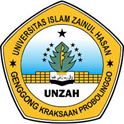Women’s Leadership in Islamic Law: Between Normative Foundations and Contemporary Realities
DOI:
https://doi.org/10.5281/zenodo.17366381Keywords:
Islamic Law; Gender Justice; Maqāṣid al-Sharī‘ah; Women’s Leadership.Abstract
This article examines the concept of women’s leadership within the framework of Islamic law, with a focus on the intersection between normative foundations and contemporary realities. Historically, discussions on imāmah al-mar’ah (female leadership) were dominated by classical jurists, whose interpretations often reflected the patriarchal structures and socio-political contexts of their time. However, with the evolution of modern Muslim societies and the rise of gender justice discourse, these interpretations require renewed contextualization. Using a qualitative-descriptive method through library research and comparative textual analysis, this study examines the arguments of prominent classical scholars such as al-Māwardī, Ibn Ḥazm, and al-Ghazālī, alongside contemporary reformists including Fazlur Rahman and Amina Wadud. The analysis employs hermeneutical reasoning and the maqāṣid al-sharī‘ah framework to explore the flexibility of Islamic legal interpretation. The findings reveal three key points. First, classical prohibitions on women’s leadership were more sociological than theological, rooted in historical contexts rather than immutable divine injunctions. Second, when assessed through the lens of maqāṣid al-sharī‘ah,women’s leadership aligns with the higher objectives of justice (al-‘adl), benefit (maṣlaḥah), and human dignity. Third, contemporary interpretations suggest a shift from gender-based exclusion to competence- and morality-based inclusion, enabling greater participation by women in political, social, and religious leadership. The study’s academic contribution lies in proposing a maqāṣid-based reinterpretation model that bridges textual orthodoxy with modern gender realities. This framework enriches Islamic legal scholarship by demonstrating that Shariah is not static butadaptive, capable of supporting egalitarian leadership principles that respond to the ethical and social demands of the modern era.
Downloads
References
Abdullatif, Bashir, and Mohd Farid Mohd Sharif, ‘Leadership in Islam: Views, Methods, and Suggestions in the Nigerian Islamic Organization’, International Journal of Academic Research in Business and Social Sciences, 2020, doi:10.6007/ijarbss/v10-i3/7036
Abed Kazem, Fatima Ali, and Muhammad Jabbar Hashem Al-Jubouri, ‘Qur’anic Rooting of Women’s Right to Freedom’, International Journal of Health Sciences, 2022, doi:10.53730/ijhs.v6ns4.11691
Amran, Ellyana, and Willy Arafah, ‘Analysis of Factors Determining Islamic Motivation Entrepreneuship of Muslim Women Entrepreneurs in Jakarta.’, Business and Entrepreneurial Review (Ber), 2020, doi:10.25105/ber.v20i2.8069
Armila, Nizma, ‘Women’s Leadership in Islamic Boarding Schools: A Comparative Study of Islamic Boarding Schools in Indonesia, Malaysia, and Brunei Darussalam’, Eduprof Islamic Education Journal, 2023, doi:10.47453/eduprof.v5i2.210
Baharudin, M, Rahmawati Mohd Yusoff, and Nadzrah Ahmad, ‘Rejecting Domestic Violence in Malaysia Based on the Qur’an and Prophetic Traditions’, Jawab, 2023, doi:10.59371/jawab.v1i1.44
Barlas, Asma, ‘Uncrossed Bridges’, Philosophy & Social Criticism, 2013, doi:10.1177/0191453713477346
Busse, Matthias, and Peter Nunnenkamp, ‘Gender Disparity in Education and the International Competition for Foreign Direct Investment’, Feminist Economics, 2009, doi:10.1080/13545700802528315
Chang, Dian-Fu, Wen-Ching Chou, and Tien-Li Chen, ‘Comparing Gender Diversity in the Process of Higher-Education Expansion in Japan, Korea, Taiwan, and the UK for SDG 5’, Sustainability, 2022, doi:10.3390/su141710929
Dawam, Mohammad, ‘Polemics About Women’s Leadership From a Modern Islamic Perspective’, J. Ris. Multidisip. Inov. Tech., 2023, doi:10.59653/jimat.v1i01.160
Djono, Sutiyah, and Fachri Zulfikar, ‘Historical Perspective of Acehnese Women’s Leadership Transformation as a Source of History Learning’, International Journal of Sustainable Development and Planning, 2022, doi:10.18280/ijsdp.170811
Febriani, Rizki, ‘Implementation of Islamic Value on Leadership, Organizational Culture and Spirituality to Performance’, Manajemen Bisnis, 2021, doi:10.22219/mb.v11i1.17006
Haque, Muhammad Faizul, Sohirin Mohammad Solihin, Nadzrah Ahmad, and Mohd. Shah Jani, ‘Women Rights to Inheritance in Muslim Family Law: An Analytical Study’, International Journal of Islamic Business & Management, 2020, doi:10.46281/ijibm.v4i1.543
Janghorban, Roksana, Robab Latifnejad Roudsari, Ali Taghipour, and Morteza Abbasi, ‘Sexual and Reproductive Rights From Qur’anic Perspective: A Quantitative Content Analysis’, Asian Social Science, 2014, doi:10.5539/ass.v11n3p182
Jasni, Jabran, and Sharfizie Mohd Sharip, ‘A Review of Islamic Leadership’s Effectiveness in Islamic-Based Institutions’, International Journal of Academic Research in Business and Social Sciences, 2022, doi:10.6007/ijarbss/v12-i9/15151
Maureal, Zeny L, Lezel Mernilo Tutanes, Ann Sheila C Rosario, and Al Jefferson Pabelic, ‘Unexpected Effects of Gender Equality in Education to Gender Disparities in Economic Participation: Global Evidences’, Asia Pacific Journal of Social and Behavioral Sciences, 2017, doi:10.57200/apjsbs.v14i0.91
Mndolwa, Florence D, and Abdul Latif Alhassan, ‘Gender Disparities in Financial Inclusion: Insights From Tanzania’, African Development Review, 2020, doi:10.1111/1467-8268.12462
Muhammad, Sultan, and Nimra Sharif, ‘Dealing With Gender Disparity in Educational Setting: A Case of Primary Schools in a Karachi’s Town’, International Journal of Experiential Learning & Case Studies, 2018, doi:10.22555/ijelcs.v3i2.2409
Mulya, Teguh Wijaya, and Zulfa Sakhiyya, ‘“Leadership Is a Sacred Matter”: Women Leaders Contesting and Contextualising Neoliberal Meritocracy in the Indonesian Academia’, Gender and Education, 2020, doi:10.1080/09540253.2020.1802407
Munawaroh, Lathifah, and Suryani Suryani, ‘Menelisik Hak-Hak Perempuan’, Kafa`ah Journal of Gender Studies, 2020, doi:10.15548/jk.v10i1.263
Nashruddin tahir, Erwati Aziz, ‘Women Rights on Reproduction in Qur’anic Perspectives’, Istinbath, 2018, doi:10.20414/ijhi.v17i2.100
Parveen, Asia, ‘A Historical Analysis of Human Rights and Women’s Status in Pakistan’, Pakistan Journal of Gender Studies, 2016, doi:10.46568/pjgs.v12i1.196
Prasetiawan, Ahmad Yusuf, and Lis Safitri, ‘Kepemimpinan Perempuan Dalam Pesantren’, Yinyang Jurnal Studi Islam Gender Dan Anak, 2019, doi:10.24090/yinyang.v14i1.2874
‘Quran and Gender Equality: Interpretation in the Light of Molana Ayyub Dehlvi’s Work’, Journal of Development and Social Sciences, 2023, doi:10.47205/jdss.2023(4-iv)26
Rehman, Badshah, and Sayed Maqsood ur Rehman, ‘An Academic Study of Women’s Rights in the Light of the Shari’ah and Social Modern Issues’, Journal of Religious Studies (Uochjrs), 2018, doi:10.33195/uochjrs-v1i2722018
Taufik, Taufik, ‘Quality Culture-Oriented Leadership Model Head of Islamic State Senior High School in Palu’, International Journal of Scientific Research and Management, 2021, doi:10.18535/ijsrm/v9i09.el03
Ul-Haq, Jabbar, Iqra Ashraf, Ahmed Raza Cheema, Qazi Muhammad Adnan Hye, and Hubert Visas, ‘The Relationship Between Trade Liberalization and Gender Disparity in Education: Evidence From Pakistan’, Nurture, 2023, doi:10.55951/nurture.v17i3.291
Unsi, Baiq Tuhfatul, ‘Analisis Konsep Tentang Wanita Amina Wadud’, Tafáqquh Jurnal Penelitian Dan Kajian Keislaman, 2022, doi:10.52431/tafaqquh.v10i2.969
Widjaja, Gunawan, ‘Review on the Women’s Rights and Islamic Law in Southeast Asia’, Journal of Law and Sustainable Development, 2023, doi:10.55908/sdgs.v11i7.751
Zaim, Halil, Ahmet Demi̇r, and Taylan Budur, ‘Ethical Leadership, Effectiveness and Team Performance: An Islamic Perspective’, Middle East J of Management, 2021, doi:10.1504/mejm.2021.111991
Downloads
Published
How to Cite
Issue
Section
License
Copyright (c) 2024 Chika Praska Anggraini et. al.

This work is licensed under a Creative Commons Attribution-ShareAlike 4.0 International License.















